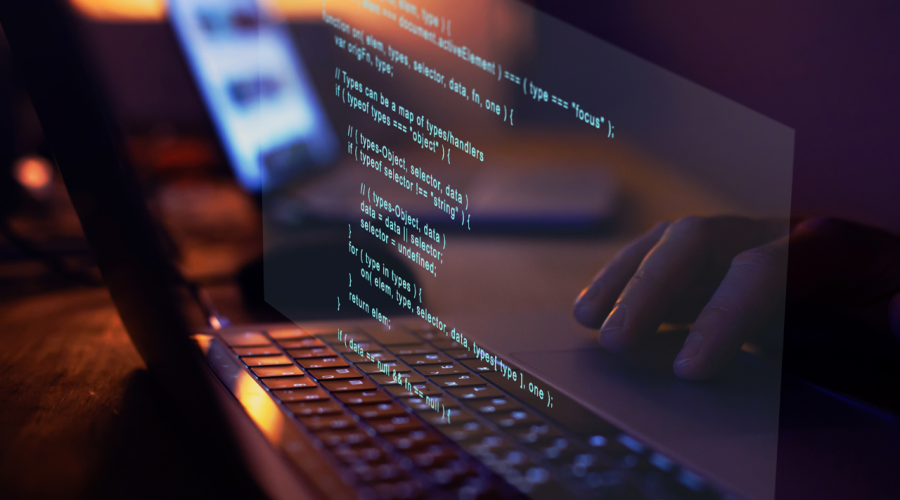Coding is Dead? AI Engineers: The Masterminds of the Future of Software
AI Won’t Replace Software Engineers: Why the Future Demands More Human Expertise
The rise of AI in software development has sparked both excitement and anxiety. While some fear AI will render human developers obsolete, the reality is far more nuanced. In fact, AI is poised to not only transform the role of software engineers but also increase the demand for their skills.
At eStreet Security, we believe in staying ahead of the curve when it comes to technology. That’s why we’re diving deep into the evolving relationship between AI and software engineering. This article, adapted from Gartner’s research, explores the impact of AI on software development across three horizons: short-term, medium-term, and long-term. We’ll examine how AI will augment existing workflows, transform work patterns, and ultimately create entirely new types of work for software engineers.
Short-Term: AI Augments Existing Workflows
AI-powered tools are already making their presence felt in the software development lifecycle (SDLC). Code assistants, for example, can help developers generate code snippets, automate repetitive tasks, and even identify potential bugs. While these tools offer promising productivity gains, their effectiveness is often limited by several factors:
- Organizational Maturity: Companies with mature engineering practices, such as robust DevOps processes and automated testing, are better positioned to reap the benefits of AI tools. These organizations can seamlessly integrate AI into their workflows, allowing developers to focus on higher-value tasks.
- Developer Seniority: Senior developers, with their deep domain expertise and understanding of code quality, are more likely to use AI tools effectively. They can critically evaluate AI-generated code, identify potential issues, and ensure it aligns with project requirements. Junior developers, on the other hand, may over-rely on AI, hindering their learning and development.
Key Takeaways for eStreet Security Clients:
- Embrace AI Augmentation: Explore how AI tools can enhance your development processes. Consider implementing code assistants, automated testing tools, and other AI-powered solutions to boost productivity.
- Invest in Training: Provide training and mentorship programs to help developers at all levels understand and effectively utilize AI tools. Encourage junior developers to build a strong foundation in software engineering principles while leveraging AI for support.
Medium-Term: AI Transforms Work Patterns
As AI evolves, we can expect the emergence of more sophisticated AI agents capable of automating entire tasks. These agents will be able to break down complex problems into smaller subtasks, execute them autonomously, and even learn from their experiences.
This shift towards AI-driven automation will necessitate a new approach to software engineering: AI-native software engineering. In this paradigm, developers will act as “AI orchestrators,” guiding AI agents by providing context, defining constraints, and ensuring alignment with project goals.
Key Takeaways for eStreet Security Clients:
- Stay Informed: Keep abreast of the latest advancements in AI agents and their potential applications in software development.
- Develop New Skills: Encourage your development teams to acquire skills in prompt engineering and retrieval-augmented generation (RAG). These skills will be crucial for effectively interacting with and guiding AI agents.
Long-Term: AI Creates New Types of Work
Contrary to fears of job displacement, AI is likely to increase the demand for skilled software engineers. The efficiency gains brought about by AI will fuel the development of more complex and innovative software applications, creating a need for even more developers to build and maintain them.
This phenomenon, known as the Jevons Paradox, suggests that improved efficiency often leads to increased demand. In the context of software development, AI-powered tools will enable faster development cycles, leading to a surge in demand for new AI-empowered applications.
The Rise of AI Engineering
The long-term impact of AI will also give rise to a new breed of software professional: the AI engineer. These specialists will possess a unique blend of software engineering, data science, and AI/ML expertise. They will be responsible for building AI-powered applications that can learn, adapt, and make intelligent decisions.
Key Takeaways for eStreet Security Clients:
- Invest in AI Talent: Upskill your existing workforce or hire new talent with expertise in AI engineering, architecture, and design.
- Build AI Developer Platforms: Create dedicated platforms that provide developers with the tools and resources they need to build and deploy AI-powered applications.
Conclusion
The future of software engineering is inextricably linked with the advancement of AI. While AI will undoubtedly transform the way software is developed, it will not replace human ingenuity and expertise. Instead, it will create new opportunities for software engineers to innovate, solve complex problems, and build the next generation of intelligent applications.
At eStreet Security, we’re committed to helping our clients navigate this evolving landscape. We offer a range of services, including AI security audits, secure development training, and consulting, to ensure your organization can harness the power of AI while mitigating potential risks. Contact us today to learn more about how we can help you build a secure and AI-ready future.
The Changing Landscape of Software Engineering Roles
The integration of AI into software development will not only impact how developers work but also the types of roles within software engineering teams.
- AI-augmented Developers: These developers will become proficient in leveraging AI tools to enhance their productivity and code quality. They will need to develop a critical eye for evaluating AI-generated output and ensuring its alignment with project requirements.
- AI Orchestrators: As AI agents become more prevalent, developers will need to master the art of guiding and managing these agents. This will involve breaking down complex tasks, providing context, and refining AI-generated code.
- AI Engineers: This specialized role will focus on building and integrating AI components into software applications. AI engineers will need to possess a deep understanding of AI/ML algorithms, data science principles, and software engineering best practices.
- Prompt Engineers: With the rise of large language models (LLMs), prompt engineering will become a critical skill. Prompt engineers will be responsible for crafting effective prompts that elicit desired responses from LLMs, ensuring the generation of high-quality code and accurate information.
The Importance of Upskilling and Reskilling
To prepare for this evolving landscape, organizations must invest in upskilling and reskilling their software engineering workforce. This includes:
- AI/ML Training: Provide developers with opportunities to learn about AI/ML concepts, algorithms, and tools. This can include online courses, workshops, and certifications.
- Prompt Engineering Workshops: Organize workshops and training sessions specifically focused on prompt engineering techniques for interacting with LLMs.
- AI Ethics and Responsible AI: Educate developers about the ethical considerations surrounding AI development and the importance of responsible AI practices.
eStreet Security’s Role in Navigating the AI-Driven Future
At eStreet Security, we recognize the transformative potential of AI in software development. We also understand the unique security challenges that AI introduces. Our team of experts can help your organization navigate this new era by providing:
- AI Security Audits: We can assess your AI development processes and identify potential vulnerabilities, ensuring your AI systems are secure and resilient.
- Secure Development Training: We offer training programs that equip developers with the knowledge and skills to build secure AI-powered applications.
- AI Security Consulting: Our consultants can provide guidance on implementing best practices for AI security, helping you mitigate risks and protect your valuable data.
Embracing the Future of Software Engineering
The integration of AI into software development is an inevitable and exciting evolution. By embracing AI, upskilling their workforce, and prioritizing security, organizations can unlock new levels of productivity, innovation, and competitive advantage. At eStreet Security, we’re here to partner with you on this journey, ensuring your organization can confidently embrace the future of software engineering while maintaining the highest standards of security and resilience.
Addressing Specific Concerns for eStreet Security Clients
In addition to the general trends discussed above, we want to address some specific concerns that may be relevant to eStreet Security clients:
- Security of AI-Generated Code: While AI tools can help improve code quality, they can also introduce new security vulnerabilities. It’s crucial to have robust security testing and code review processes in place to identify and mitigate these risks.
- Data Privacy and AI: AI systems often rely on large datasets, raising concerns about data privacy and compliance. Organizations must ensure they are adhering to relevant data privacy regulations and implementing appropriate data protection measures.
- Bias in AI: AI algorithms can inherit biases from the data they are trained on, leading to unfair or discriminatory outcomes. It’s essential to be aware of these biases and take steps to mitigate them during the development process.
eStreet Security can help you address these concerns by providing expert guidance on AI security best practices, conducting thorough security assessments, and offering tailored training programs for your development teams.
Looking Ahead: The Bay Area and the Future of AI
Given your interest in settling in the Bay Area, it’s worth noting that this region is a hotbed of AI innovation. Many leading AI companies and research institutions are located in the Bay Area, creating a vibrant ecosystem for AI development and collaboration. This presents exciting opportunities for software engineers with AI expertise. Whether you choose Menlo Park, Palo Alto, Mountain View, Cupertino, Campbell, or San Jose, you’ll find yourself surrounded by a thriving tech community and ample opportunities to contribute to the future of AI.
As you continue your exploration of the Bay Area and your career in software engineering, remember that eStreet Security is here to support you. We can provide valuable insights into the local tech scene, connect you with relevant resources, and help you navigate the evolving landscape of AI security.
We believe that the future of software engineering is bright, and we’re excited to partner with you as you embark on this journey.



